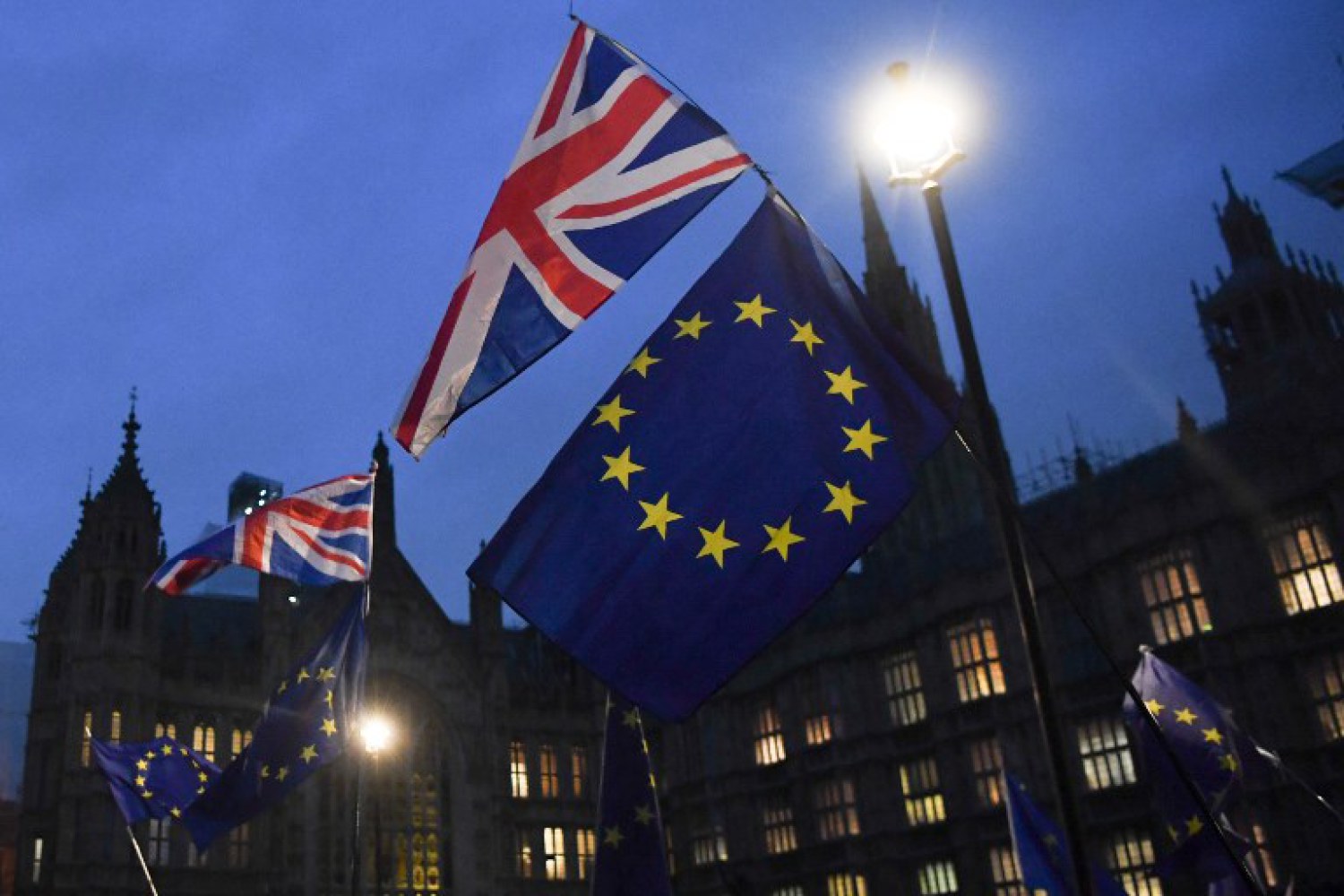What next for Brexit? Three main scenarios

British Union Flags and EU flags are seen outside the Houses of Parliament in central London on January 15, 2019. AFP
LONDON, United Kingdom – After rejecting Prime Minister Theresa May’s Brexit deal by a massive margin, British MPs on Wednesday evening declined an attempt to remove her government.
She won a confidence vote by a majority of 19 with the support of her Conservative MPs and Northern Irish allies — a day after they refused to back her Brexit deal.
Here are the three main scenarios now facing Britain while the clock ticks down to its scheduled departure from the European Union on March 29:
Try to get another deal
May promised cross-party talks to try to find an alternative deal, beginning immediately on Wednesday night.
She and her ministers will meet with groups of MPs, including hardline Conservative Brexit supporters, on Thursday with further meetings expected into the weekend.
May intends to make a statement to the House of Commons on Monday, setting out a Plan B, and has said if necessary she will return to Brussels for talks with the European Union.
But she has repeated that any deal must take Britain out of the EU, end uncontrolled EU migration and allow the country to sign independent trade deals.
The last two conditions would seem incompatible with continued membership of the EU’s single market and a customs union, advocated by the opposition Labor party.
Labor leader Jeremy Corbyn also refused to hold talks with May until she ruled out leaving the EU with no deal, something Downing Street refused, saying the only way to do this was to agree a deal.
EU leaders have said they are willing to negotiate further but have repeatedly said they do not want to reopen the Brexit deal agreed with May.
“We must find solutions that are negotiable and command sufficient support in this House,” the prime minister told MPs on Wednesday night.
No deal
Britain is legally on track to leave the EU with or without a deal on March 29, unless it delays or stops the process.
A no-deal scenario threatens to trigger a recession in Britain and markedly slow the EU’s economic growth, as well as causing significant legal disruption.
The world’s fifth-biggest economy could lose preferential access to its largest export market overnight, affecting every sector, leading to rising costs and disruption at British ports.
The government has conducted visible displays of its ramped-up no-deal preparations over the past few weeks.
There is growing speculation in London and Brussels that it could seek to delay Brexit to avoid this scenario, although May has denied this.
Second referendum
EU supporters have been calling for another vote ever since the Leave campaign won by 52 to 48 percent in the 2016 referendum, and demands have stepped up in recent months.
There is no law keeping Britain from doing it all over again, but many question whether this would be democratic.
May has warned another vote “would do irreparable damage to the integrity of our politics”.
It also threatens to be just as divisive, with opinion polls showing the country is still split over the issue.
A majority of MPs would have to support the idea and pass a law to hold the referendum, which would likely result in Brexit being delayed while the process took place. /cbb